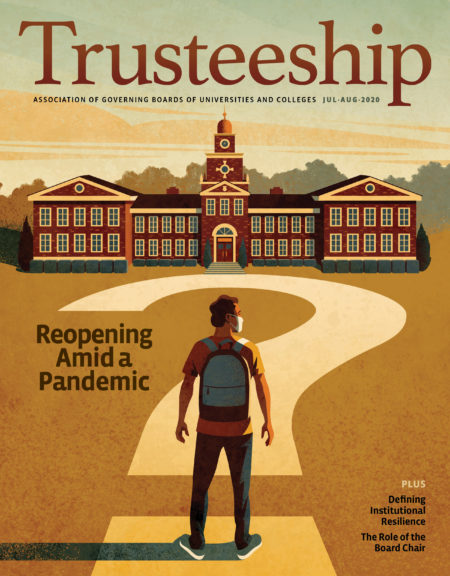
The University of Miami has faced unforeseen crises before, such as hurricanes, and has a strong level of preparedness, but not all crises are the same. Trusteeship magazine asked Juilo Frenk his advice about how boards can lead in a crisis, especially in the aftermath of the novel coronavirus pandemic.
Frenk is a fourth-generation physician and president of the University of Miami. He also holds academic appointments as professor of public health sciences at the Leonard M. Miller School of Medicine and as professor of health sector management and policy at the University of Miami Herbert Business School. He served as the minister of health of Mexico from 2000 to 2006. Frenk holds a medical degree from the National University of Mexico, as well as a master of public health and a joint PhD in medical care organization and in sociology from the University of Michigan.
Your campus has dealt with crises before, such as hurricanes. How has the COVID-19 crisis been different?
Other crises are acute and more predictable—they have a clear beginning and end, and a shorter duration. COVID-19 is a crisis that will have both short- and long-term implications. Moreover, because it is a novel pathogen, the one thing that is a given is uncertainty. Responding to this crisis requires flexibility, effective contingency planning, and clear, concise, credible, consistent communication.
How can boards prepare for longer-term implications of this crisis?
Boards need to be engaged in addressing the immediate needs, but also must be prepared to take the long view. For instance, this will be a watershed moment in the development of technology and the use of online platforms for learning. Higher education can double down and take advantage of the opportunity the emergency has created to embrace innovative technologies. Doing so requires the support of the board.
How can boards make good decisions in times of crisis?
The best way to make good decisions in times of crisis is to base them on the data and information coming from the technical experts. Crises are often complex and fluid and, in the case of a pandemic, the situation is directly impacted by human behavior. Scientists who have studied the underlying issue—whether it is a novel pathogen or a natural disaster—are best equipped to interpret the data that will allow boards to make timely evidence-based decisions.

